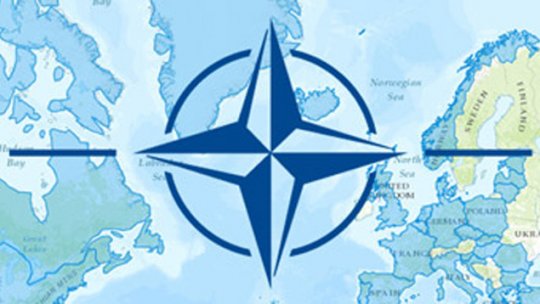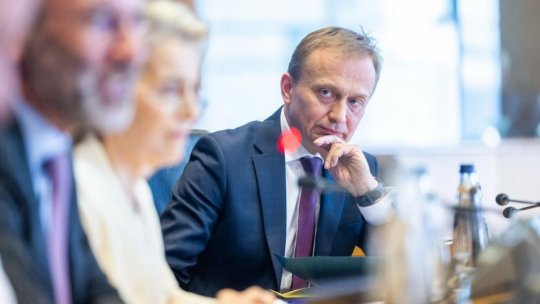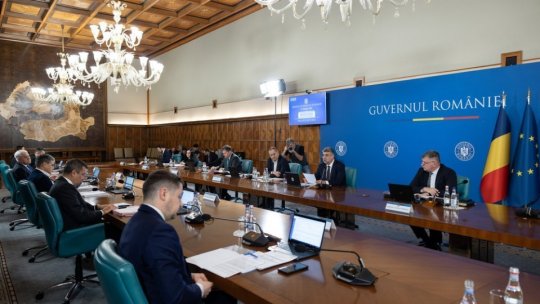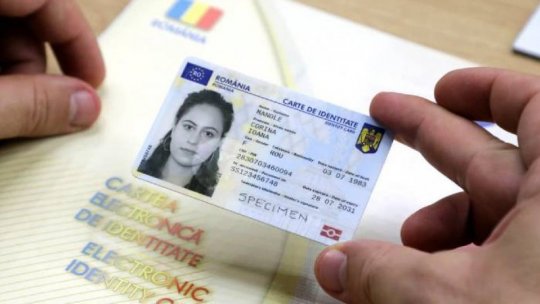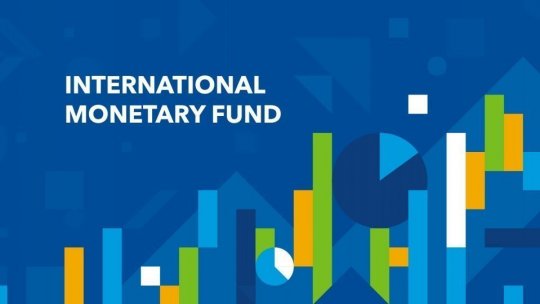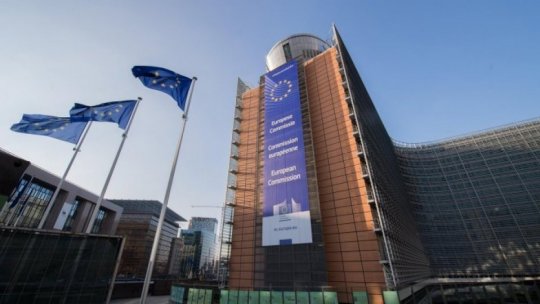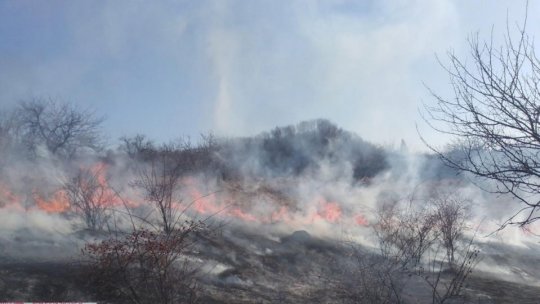Black Sea Powder Keg
Russia has stepped up military maneuvers in the Black Sea, where it is currently deploying shipyards south of Kerch Strait.
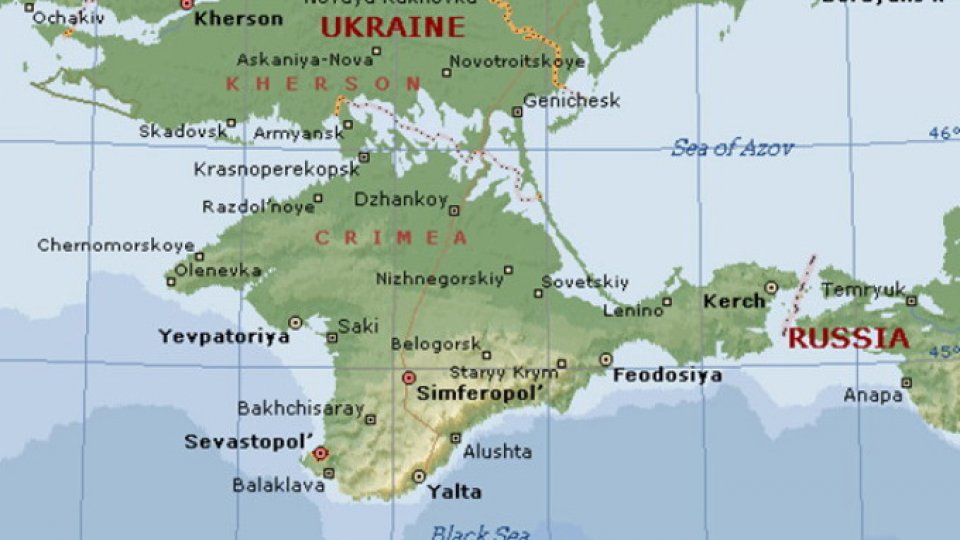
Articol de Radu Dobriţoiu, 09 Decembrie 2018, 23:19
Producer Radu Dobrițoiu: Russia has stepped up military maneuvers in the Black Sea, where it is currently deploying shipyards south of Kerch Strait, which links Black Sea and Azov Sea. These actions began 10 days after the November 25 incident, when Russian Coast Guard intercepted and seized, by using force, three Ukrainian military ships trying to cross the Strait. Following the incident, Ukraine instituted martial law for 30 days in 10 border regions, restricting the entry of Russian citizens on its territory. According to all coordinates transmitted by Moscow to the international NAVTEX system for automatic transmission and reception of maritime safety messages, naval maneuvering zone is located southeast of the Crimean Peninsula. Region is now declared as presenting a safety hazard to navigation. Maneuvers are scheduled to end on December 9 and are underway amid high tensions at Ukraine’s eastern border with Russia.
Radio Romania News Producer Radu Dobriţoiu, military reporter, analyzed these recent developments in the latest “Euroatlantica” show of Radio Romania News (Radio Romania Actualități), broadcasted on 7 December 2018, having as special guestExecutive President of EURISC Foundation (European Institute for Risk, Security and Communication Management), Liviu Mureșan, with interventions of Radio Romania News correspondents in the United States and Russia. Title of edition: "Black Sea Powder Keg".
Radu Dobriţoiu: Mr. Liviu Mureşan, we are witnessing a new stage of tensions between Ukraine and Russia, just a few hundred kilometers away from Romania’s borders. How much do we have to worry about this evolution?
Liviu Mureșan: It is a reality that should concern not only the military factors, but the society as a whole, discussions at the level of political factors must be increasingly concentrated on national security issues, on position of Romania in this extremely complex security environment that we find ourselves into (…) We are located in the direct range of missiles that have been or are being installed in Crimea. At the last security conference in Moscow last April, for example, Russia's Chief of Staff, General Valery Gherasimov, presented some maps where Romania was a target country in this respect, so we need to be aware of the high degree of unpredictability and danger, but let us look at how the US and Western European countries are addressing the issue as well. Beyond the utterly critical Russian speeches, we must pay close attention and see the reasons why Ukraine has been involved in this game and we must also be aware of the internal timetable that exists both in Kiev and Moscow and to have a weighted position in coordination with our colleagues, so that we are not drawn into a dispute on which we do not know exactly if there are only two players or other powers that are interested in this evolution of things.
Radu Dobriţoiu: Since 2014, when we can say this aggression began in the East of Ukraine, we had several stages. First Crimea and Sevastopol, which have become a true bridgehead of Moscow near NATO’s eastern flank, then Donbas and, of course, this latest evolution that includes the eastern border of the Azov Sea, Donetsk divided by half, and word is Russia's intention is to reach Mariupol, where we know very well there are some steel plants and an important harbor. That area is a border, a temporary border established between the Ukrainian and Russian troops and, as in any war, with a portion of "no man's land". There are stages and, here we are, witnessing another stage. That is (…) Russia is still insisting and still advancing in some way.
Liviu Mureșan: Let's get some landmarks. First, according to the latest polls, President Poroshenko has about 7-8%.
Radu Dobriţoiu: He seems to be the fifth in range.
Liviu Mureșan: There is a growing star reaching to play the role of Mother Teresa, Yulia Tymoshenko, and we know very well the many activities she had, the latest problems, prosecution that could not be disputed in the end and I also saw American colleagues who did not get involved when this decision was taken ... So the situation is extremely complex. Unfortunately, after several trips I had in Ukraine, especially in Kiev, I can say that population is extremely disappointed. The youth ... So there is a great degree of expectation that something will happen, so that this country can finally function. "The Maidan" has been a failed experience, and in attempts for finding a solution outside the borders through this challenge and in these chances offered to Russia to react immediately, it is extremely dangerous, given the fact that it all happens so close to us and involvement should be avoided until these games are clear. Let us not forget that there are very large interests in the area. Ukraine is not a tied country, so to speak. It is extremely complex ...
Radu Dobrițoiu: And with no history ...
Liviu Mureșan: With a controversial history and so on. Assisting them in drafting security, strategy papers, I saw that it is very difficult for them to define their national interest, plans for the future, agree with each other - civilians and soldiers - about what they put on paper. So, in this confusion, we risk entering this conflict - currently at the level of naval forces - between Russia and Ukraine.
Radu Dobriţoiu: The United States is closely following the events in the Black Sea and situations created in the Strait of Kerch, which provide access to the Azov Sea. The US Fifth Fleet can send a warship to the Black Sea.
RRA Correspondent in Washington, Doina Saiciuc: The Pentagon has asked the Department of State to notify Turkey of a possible plan to send a warship in the Black Sea, in response to Russia's actions against Ukraine in the Strait of Kerch. Access to the Black Sea through the Bosphorus Strait is governed by the 1936 Montreux Convention Regarding the Regime of the Straits, which requires countries without a Black Sea coast to notify Turkey of the intention to send military ships to the Black Sea at least 15 days before crossing the straits. Notification would allow US naval forces to send a warship to the Black Sea, but it might be possible that this option does not turn into action. Commander Kyle Raines, US 6th Fleet spokesman, who oversees naval operations in the region, has shown that the fleet is always ready to respond when requested. "We conduct routine operations to advance security and stability across the entire area of operations of the 6th Fleet that includes international waters and the Black Sea airspace", spokesman Reyes said. The last US ship that entered the Black Sea in October is the USNS Carson City fast transport. Destroyer USS Carney left the Black Sea at the end of August. Under the Montreux Convention, US ships can stay in the Black Sea for only 21 days. On Tuesday, December 4, at NATO Headquarters in Brussels, Secretary of State Mike Pompeo said the Alliance would develop a set of responses to demonstrate to Russia that its attitude is unacceptable. An alternative, some analysts say, would be sending more armament to Ukraine, whose naval force consists of 66 ships, compared to about 2,800 of Russia.
Radu Dobriţoiu: Mr. Liviu Mureşan, there has been a lot of discussion lately about Russia's desire to regain Ukraine in a way, especially as we know very well that recently, Constitution of Ukraine has defined NATO and EU as objectives, which seems to have disturbed Moscow.
Liviu Mureșan: Russia does not need to regain Ukraine. Russia is present in a special proportion not only in the east, but also in the Ukrainian structures. Poroshenko, the president, if we remember, spoke a few months ago of the fact that the Ukrainian intelligence service is 80% controlled by the Russian intelligence service. This is an element of deep concern. At the same time, these developments happening now on the chess board are with a large economic load. We do not only look at the ships and the military forces that are being deployed, so it is the interest of Ukraine to extract its steel, cereals and so on, to take them to the Black Sea and sell them. At the same time, Russia had to invest four billion in that bridge ...
Radu Dobriţoiu: Huge bridge of four or five kilometers
Liviu Mureșan: /.../ Crimea is terrible for Russia's already fragile budget. But, from a military point of view, we cannot forget that this great power cannot give up Crimea, no matter what. It is the only area, the only base they have around the world that never freezes, and, moreover, a less commented thing is that President Putin has managed in years to create a geopolitical axis that must worry us, namely Caspian Sea, Black Sea, Mediterranean Sea. So, on this geopolitical axis, there will be some things that are also linked with…
Radu Dobrițoiu: Kaliningrad - Crimean Peninsula, we can make an axis that largely coincides with NATO's eastern flank, too,if we think about it. I rather thought, Mr. Muresan, not a recapture, but a recovery in some way of Ukraine, and here we are speaking about the Azov Sea, about that area located, as I said, between Mariupol and Donetsk, where a very large population, over 75%, if I am not mistaken, speaks Russian.
Liviu Mureșan: Not only that, but let us not to forget the design capacities, production capacities that existed there, the peak technique, the aviation, the cosmic space and so on. Why was there a need for a humanitarian aid column of 100 and a few trucks that brought food and then left with the equipment from there. So Russia needs to rebuild its production base for this special area of security and defense. At the same time, if we try to look a bit broader on this area and upon the moment, it is a contact line between NATO and the Shanghai Cooperation Organization, which is already at the Black Sea through the Russian presence (…) and we must keep in mind this approach and the possible evolutions.
Radu Dobriţoiu: After being heard this week by the respective Senate Commission, Romanian Defense Minister Gabriel Leş said that diplomacy and political dialogue are important for resolving the crisis caused by Russia's detention of ships and soldiers from Ukraine in the Port of Kerch, on the Crimean Peninsula.
Gabriel Leş: I call on the press and the population to remain calm. I do not want to escalate such an issue, which is nonetheless sensitive. I firmly believe that diplomacy and political dialogue haven’t yet said the last word, and this is the most important. On the other hand, Romania and its Ministry of Defense monitor this situation very carefully, and of course, as part of EU and NATO structures, decisions are made at this level. We believe that Romania has done very well in the structure of NATO so far, bringing the Black Sea to the level it needs, given that we are talking about the eastern flank of the North Atlantic Alliance. We know everything that happens there, we monitor the situation together with the NATO structures.
Radu Dobriţoiu: According to Minister Gabriel Leş, it is very likely that the agenda of the Superior Council of Country Defense (CSAT) meeting on December 11 will also include Russia's action in the Black Sea and deterioration of the security situation at Ukraine’s eastern border. Mr. Liviu Mureşan, we are talking about the Black Sea, where in our immediate vicinity we have an extremely important Russian fleet, and about the Crimean peninsula where, as you said, there is an important arsenal, up to recently here were three S-300 air missile defense systems S-300, two Iskander-M tactical missile systems and the Russians have announced their intention to move another S-400 system in the Crimean Peninsula, to strengthen the area. So here’s Ukraine with Poroshenko focused on his own electoral campaign, trying to gain political capital and here’s a very delicate area close to us. Can Romania play an important, stabilizing role in this region?
Liviu Mureșan: Not only it can, but it has to play a role and this time, Romania has the cards in its own hands. Due to the fact that for six months starting with January 2019 (n.a.) Romania will hold the Presidency of the EU Council, we can express our concern, come up with proposals, solutions, and start a dialogue to relieve tensions. I hope we will use this chance. I would like to mention two actors for this area of the Black Sea. First of all Turkey, less talked about, which is interested in finding a negotiated formula between Ukraine and Russia, to maintain its diplomatic power ...
Radu Dobriţoiu: And its status as a regional power..
Liviu Mureșan: Yes, we also discuss the personal situation of President of Turkey, and, at the same time, do not forget that there were ships from China in the Black Sea, Russia and China made joint drills in the Mediterranean, so for the time being, China is present here in this formula of One Belt One Road (OBOR) and 16 +1 (China-CEE / cooperation between China and the Eastern and Central European Countries, n.a.) and is certainly interested in stability starting with this new geo-political axis, then with Suez, MENA (Middle East and North Africa). I would like to keep in mind that the Russians are chess players, they work long term, they take advantage of any moment of weakness or of any area left free ...
(…)
Radu Dobriţoiu: Russia believes that the incident in the Kerch Strait is a minor one, used by President of Ukraine, who is trying to win political capital. RRA correspondent in Moscow, Alexandr Beleavschi took an exclusive interview especially for “Euroatlantica”, having as main theme the security evolution in the Black Sea.
RRA correspondent in Moscow, Alexandr Beleavschi: President Putin called the Russian-Ukrainian naval incident in the Kerch Strait a minor border incident and a challenge that has been organized by Ukrainian President Petro Poroshenko to increase his electoral vote in the presidential elections in March 2019 and to put the state of war at the expense of his political opponents. Military analyst Igor Korotchenko, Editor-in-Chief of "Nationalnaia Oborona" (National Defense), in an interview offered to Radio Romania, considers that the situation in the Black Sea is unlikely to escalate.
Igor Korotchenko: I am not going to exaggerate that the Black Sea might become a barrel of powder. It was a small challenge from Ukraine, determined by Poroshenko's attempt to accumulate political points before the elections, to strengthen his nationalist electorate. I do not even see as a tragedy the fact that the Americans are now sending a military ship to the Black Sea. Ships come periodically, and Russia's electronic monitoring means, coastal batteries and Black Sea Fleet Naval Air Force control everything that's happening in the area, reason why I think the situation will be calm if the US does not set up challenges at our border. Ships will enter, stay for a while and leave, as required by the Montreux Convention. Everyone understands very well that this is a pre-election situation. I do not think that NATO will fight for Ukraine, especially since Russia is not in a state of war with Ukraine.
RRA correspondent in Moscow, Alexandr Beleavschi: Russia's Chief of Staff, General Valery Gherasimov, said at a recent briefing for foreign military attachés that if the US withdraws from the Moscow-Treaty on cessation of ground-based nuclear missiles and will deploy such missiles on the territory of European countries, these countries will become potential targets for Russian strikes-back. I have asked Igor Korotchenko about how the crisis of medium-range missiles can influence the security situation in the Black Sea.
Igor Korotchenko: It all depends on NATO countries, especially those on the southern flank, if they will host medium and short-range US missiles. If they do not, situation will not change. But if the countries of South and Eastern Europe start to deploy US missiles positioned towards Russia, they automatically become the subject of the first responses from the strategic and tactical Russian systems.
Radu Dobriţoiu: Extremely interesting information brought to “Euroatlantica” by my colleague Saşa Beleavschi. There it is, Mr. Liviu Mureşan, a very complex situation in this area of confluence between NATO and the EU, Ukraine that wants to reach NATO and the EU, and of course Russia - we have the two camps, Russia and NATO (…) in this important confluence zone where Romania also has an important role. And we get to the medium-range missiles (..) starting from a rather small incident in Kerch (…) we hope it is not true that Poroshenko would have wanted this incident.
Liviu Mureșan: Let us look carefully and wisely at this evolution (...) This incident is part of a series of issues that are being discussed at any moment between the President of the United States and the President of Russia - there are channels that work very well between them and let’s take a look back on how the theater of operations in Syria worked, where there was an absolute street-level proximity between various forces and how these powers, mainly the United States, managed to avoid confrontations, by deployment of forces ...
Radu Dobriţoiu: And incidents that could have led to ...
Liviu Mureșan: Absolutely. Here we have to take into account an issue that has not been clarified, namely the aviation incident between Israel and Russia, because there was one ...
Radu Dobrițoiu: With a Russian research plane shot down by Syrian missiles of Russian production.
Liviu Mureșan: ..and how Israeli aviation took advantage of a shielding moment and saved their aircraft /..../ hiding behind the Russian research plane that was hit and crashed with 15 people on board. The Russian Federation does not forget this, and this link, which is very important for the area - namely a balanced relationship between the Black Sea and extended power factors - needs to be restored.
Radu Dobriţoiu: "Euroatlantica" at the end, we have discussed the latest security developments in the Black Sea.Guest of the edition was Liviu Mureșan, Executive President of the EURISC Foundation. I am Radu Dobriţoiu and together with the Producer of the show, Nicu Popescu, thank you for listening to the "Euroatlantica" show at Radio România Actualităţi (Radio Romania News).
Source:RRA, RADOR. Translated by Miruna Matei

